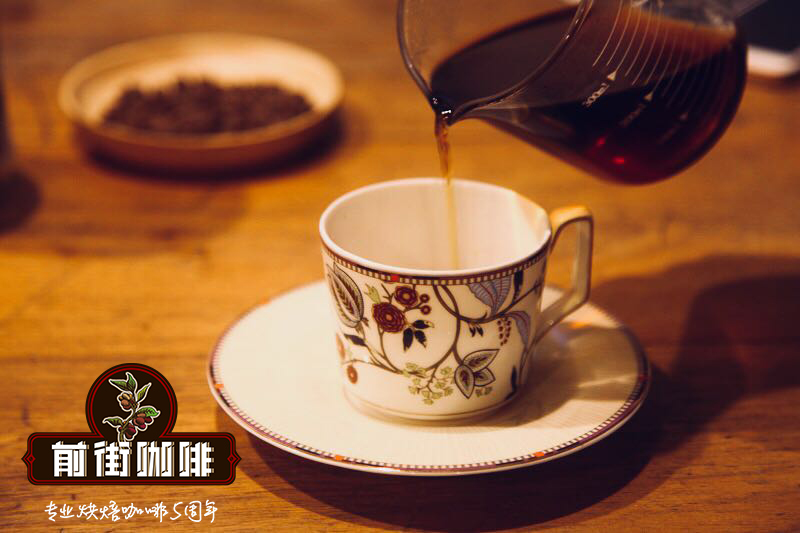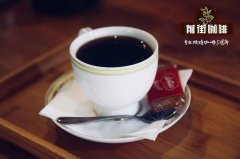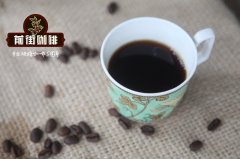Introduction to the Information Story of Platinum Manor in El Salvador-how to make Bourbon Coffee in Platinum Manor

Professional coffee knowledge exchange More coffee bean information Please pay attention to coffee workshop (Weixin Official Accounts cafe_style)
geographic
El Salvador is located in the north of Central America and is the most densely populated country in Central America. Honduras borders the country to the north, the Pacific Ocean to the south and Guatemala to the northwest. The national economy is dominated by agriculture, with coffee and cotton as the main crops. El Salvador is also one of the birthplaces of ancient Mayan culture, not only has a distant culture, but also has beautiful scenery such as volcanoes, plateau lakes and beaches along the Pacific coast.
environment
Salvadoran coffee is 100% Arabica, of which 68% is bourbon, and bourbon coffee is usually grown at altitudes of 1062 - 1972m. El Salvador's unique mountainous river plateau terrain provides a suitable environment for the growth of Bourbon coffee. At the same time, El Salvador's suitable temperature and abundant rainfall and fertile soil are also indispensable natural conditions for breeding high-quality coffee beans. Salvadoran coffee is balanced, soft, and good in texture, just like other typical island beans.
El Salvador Farm La Pechuga Platinum Estate, located in the volcanic area of Apaneca Ilamatepeq, at an altitude of 4550 feet, is one of the most delicate coffee producing areas in El Salvador. The rich volcanic soil and microclimate provide the best growing environment for coffee. Located at the windward mouth of the crater valley, coffee trees need to resist strong seasonal winds when growing, making coffee fruit grow more solid and sweet.
Platinum Estate has a very charming and complete ecological chain structure. There is a natural spring in the middle of the estate, and it is the most representative natural ecological coffee in El Salvador. The estate covers an area of 11 hectares and is planted with El Salvador's national treasure-Centennial Bourbon Coffee Beans. It produces special floral and chocolate flavors and pleasant aftertaste. It also has a brilliant and bright fruit acid flavor, which is the flavor that top alpine Arabica beans can present.
The main shade trees on the estate are pear trees, Ingas and native trees, which provide a cooler temperature. The owner of the farm plans the work of the farm systematically to ensure that every member of the team has warm work opportunities. Platinum Estate is undoubtedly an excellent coffee estate with outstanding cup results, produced under socially and environmentally friendly conditions, and committed by the fourth generation to continue to improve the quality of coffee with passion and dedication for the sustainable management of Salvadoran fine coffee.
grade division
El Salvador, Guatemala, Costa Rica and other Central American countries, are located in the rolling mountains, the coffee farms in the territory are located in the mountains of different heights, so it is necessary to divide the coffee beans by the height of the origin. Generally speaking, the height of the origin is relatively low, the climate is warmer, the coffee grows faster, the density of the raw beans is smaller, the texture is not hard, the coffee quality is relatively poor, and the climate in the alpine area is cold, the coffee grows slowly, the density of the raw beans is high, the texture is hard, the coffee is naturally aromatic and rich, and accompanied by a strong sour taste. So some people also use "hardness" to grade. The classification of these regions can be divided into the following categories, only the first few can be included in the selection of coffee.
Some farms sit on gentle slopes along the Pacific coast, between 984 and 3,280 feet high, known as the Pacific Class, which is less acidic. Similarly, in places such as Mexico, Honduras and Haiti, the grade that can be included in the selection coffee should be Strictly High Grown(SHG), followed by High Grown(HG).
How to make Salvadoran coffee?
Front Street Coffee Hand Brewing Reference: Weigh 15g of [Platinum Manor] coffee powder, pour it into the grinder and grind it moderately. The ground particles are slightly coarser than salt. We use BG grinder scale 5R (standard sieve pass rate 60%), water temperature 89 ℃, V60 filter cup extraction.
The hot water in the hand-made pot draws a circle clockwise with the center of the filter cup as the center. The timing starts when brewing. The coffee is brewed to 30g in 15 seconds. Then stop filling water. When the time reaches 1 minute, fill water for the second time. When injecting water for the second time, as before, draw a circle clockwise around the center of the filter cup, and the water flow should not rush to the place where the coffee powder is connected with the filter paper, so as to avoid channel effect.
Coffee powder to the outermost circle to leave a circle, and then a circle to the middle brewing, 2 minutes and 20 seconds, coffee to 220g, brewing coffee is complete.
| Japanese Ice Hand Chong [Platinum Manor]
Front Street Coffee Ice Hand Chong [Platinum Manor] Reference:
Salvadoran coffee [Platinum Manor], medium roast, BG grinder scale 5M (standard sieve pass rate 67%)
20 grams of powder, 150 grams of ice, 150 grams of hot water. The water temperature is 90℃ higher than the recommended normal hand flushing, and then 1℃ higher. The normal grinding small Fuji 3.5 scale, ice hand flushing is slightly smaller than half a grid-small Fuji 3 scale.
Steaming water 40 grams, steaming time 30 seconds.
Water injection in stages, 60 grams of water in the first stage and 40 grams of water in the second stage. Use a relatively fine but high water injection column, stir the impact vigorously, so that the coffee powder fully tumbling, but be careful that the liquid level is not too high, do not rush to the edge of the filter paper.
The whole extraction time is also about 2 minutes and a half (with the normal extraction time of 20 grams of powder close).
END
Important Notice :
前街咖啡 FrontStreet Coffee has moved to new addredd:
FrontStreet Coffee Address: 315,Donghua East Road,GuangZhou
Tel:020 38364473
- Prev

Met Kenya in El Salvador! SL28 handmade parameters sharing of El Salvador Olive Manor
Professional coffee knowledge exchange more coffee bean information please follow the coffee workshop (Wechat official account cafe_style) Salvadoran Coffee Manor-Olive Tree Manor (KENYA SL28) Olive Tree Manor began to grow coffee in 1930, located in the Santa Ana volcanic area of El Salvador Olive Tree Manor surrounds El Salvador's very famous LOS VOLCANES (volcano)
- Next

Introduction to the flavor characteristics and brewing parameters of washpa Camara hand-made coffee in Bentanas Manor, El Salvador
Professional coffee knowledge exchange more coffee bean information please follow the coffee workshop (Wechat official account cafe_style) Salvadoran Coffee-Bentanas Manor Finca Las Ventanas 2017 El COE International ranking 19 Bentanas Manor is a frequently award-winning excellent manor, but also from the origin of El Salvador good coffee tea blue Ternango (CHALATENA)
Related
- Detailed explanation of Jadeite planting Land in Panamanian Jadeite Manor introduction to the grading system of Jadeite competitive bidding, Red bid, Green bid and Rose Summer
- Story of Coffee planting in Brenka region of Costa Rica Stonehenge Manor anaerobic heavy honey treatment of flavor mouth
- What's on the barrel of Blue Mountain Coffee beans?
- Can American coffee also pull flowers? How to use hot American style to pull out a good-looking pattern?
- Can you make a cold extract with coffee beans? What is the right proportion for cold-extracted coffee formula?
- Indonesian PWN Gold Mandrine Coffee Origin Features Flavor How to Chong? Mandolin coffee is American.
- A brief introduction to the flavor characteristics of Brazilian yellow bourbon coffee beans
- What is the effect of different water quality on the flavor of cold-extracted coffee? What kind of water is best for brewing coffee?
- Why do you think of Rose Summer whenever you mention Panamanian coffee?
- Introduction to the characteristics of authentic blue mountain coffee bean producing areas? What is the CIB Coffee Authority in Jamaica?

